Introduction
In part one of this article, I explained using the illustration of Denen, an orange farmer, to explain how economies are supposed to work. In it, I referred to African governments as the three-headed beasts responsible for Africa’s underdevelopment. In this part, I explain the three heads, and their role in causing economic chaos in Africa.
The First Head: Taxes
The first head of the beast that alters the peaceful and voluntary process described in the part one of this article is taxation. Taxation is when the government forcefully extorts money from individuals and businesses. I call it extortion because – unlike the Denen illustration in part one – it is involuntary. People have grown so accustomed to taxes that they think of it as something they voluntarily give, but I never hesitate to remind them that if the government gave people the option to not pay taxes, 99.9999999% of the population would not pay it. Governments demand that you pay taxes, and if you resist, they can:
1. Bring armed men (police and or military) and take you to prison.
2. Forcefully shut down your business.
3. In some instances, the government does not give you the option to resist payment, but take it directly from your employer or your account.
Horrifyingly, when you take issue with the government taking the money you worked for and resist government enforcers (police and military) in their attempt to take you and lock you up in a cell, they are authorized to batter and even kill you without any fear of consequence.
In what way is this different from how the mafia operates? Is a criminal activity less criminal because it is done by the government?
When governments extort taxes from individuals and businesses, they inevitably worsen their condition. When government taxes Denen, it takes away his ability to meet his needs, to reinvest, and to save. As was pointed out in part one, the process of Denen satisfying his needs, reinvesting, and saving, gives others the ability to do the same, so when the government taxes by forcefully taking his money, it has literally caused products and jobs that would have been created to not be created. The baker from whom Denen would have bought bread would have less money to meet his needs, expand his bakery, employ more people, save etc. The landowner who would have sold land to Denen expand his farm would now have less means to satisfy his needs. The people Denen would have employed to help him increase his orange output would remain unemployed. There would now be fewer oranges in Nigeria, causing the prices of oranges to rise and leaving many consumers without oranges to enjoy. Prices of orange juice and medicines made from oranges would also rise. The chain of destruction and misery brought about by the government’s taxation of Denen has reduced the welfare for all Nigerians and indeed, people all over the world.
By forcefully stealing Denen’s money, this is what the government creates
1. Lower productivity (fewer oranges and orange products)
2. Higher prices (inflation)
3. Fewer jobs (unemployment)
4. Deprives the family of Denen from welfare payments
5. Reduces credit for other investors (a problem the government ‘solves’ in a most sinister way).
Africa has some of the highest tax rates in the world, and all these high taxes are one of the major reasons why business is dying in Africa, and why foreign investors are not excited to invest their money here.
According to a recent post by TrackaNG; “There are officially 60 different taxes in Nigeria and unofficially 200 different taxes.”. Nigeria has a corporate income tax of 30%, a personal income tax of 7% - 24%, a value added tax of 7.5% a consumption tax of 4% - 5%, and a host of other taxes.
If Denen was real:
· In order not to suffer loss, he would have to add 12.5% (V.A.T and C.T) to the price of each unit of sale of oranges, making his oranges more expensive, thus discouraging consumers
· After meeting all his financial obligations to his workers, he would be forced to pay 30% of what is left in taxes.
· As if all this is not bad enough, he still has to pay 24% of whatever he has left over to the government as a personal income tax.
· In Nigeria’s case, he might still have to pay 56 to 196 other taxes that would lead the prices of his oranges needlessly high for consumers and other producers.
Some might argue that the money collected in taxes would be used for the common good; that the taxes would be spent on building roads, bridges, schools on law enforcement etc. I respond saying;
1. Does the need for roads, hospitals, and schools make this fair?
2. The voluntary or private sector has proven throughout history to be more efficient at providing the aforementioned services, but the focus of this article is to point out the flaws of government intervention and not to argue the case for free markets. Governments are wasteful, corrupt, negligent, and altogether inefficient in their operations.
The Second Head: Regulation
Imagine if the government told Denen that he needed a license to farm oranges, and made him jump through expensive and unnecessary hoops to get an orange farming license, or restricted him to selling to certain buyers, or forcing him to pay wages to his workers that are unsustainable. Imagine how such regulations would harm not only Denen, but his workers, and those who benefit from his delicious oranges.
Nigeria has hundreds – if not – thousands of regulations and regulatory agencies that interfere with the voluntary and prosperous market process illustrated in the first part of this article. Perhaps I will write other articles outlining the various regulatory agencies, and their crushing effects on businesses. Let it be sufficient for now to know that there are very many such regulatory agencies in Nigeria, and in Africa. Agencies that are responsible for why businesses die, and why foreigners refuse to invest here.
The Third Head: Inflation
I was taught at university that inflation is an unavoidable part of the market process, that it is caused by the greed of businessmen like Denen who jack up the prices of their commodities to make more profit. Imagine my shock to learn that inflation was entirely avoidable, and was neither a part of the market process, nor caused by the greed businessmen, but that it was actual government policy. Yes! Inflation is not something that just happens, but is something that governments literally cause.
Inflation is when the government – through central banks – creates money.
When Denen wants money to satisfy his needs, he has the following options
1. Work
2. Beg
3. Steal
When he works, he serves voluntarily his fellow man (leaving him better off), and gets rewarded for his service with money. If begs or steals, he does so from men who have also served their fellow man in exchange for a monetary reward.
When governments want to spend on services that the voluntary sector is more efficient at offering, and they fear an uprising from the people if taxes are increased, they employ a most sinister means of getting what they want. They call on their central banks to print currency into existence. They literally do not have to serve mankind in exchange for money. They literally just print – or in modern cases – type the money into existence. Everyone else has to give something to get something, but the government – through the evil of central baking – does not bother itself with such noble acts. There is another group of vile people who do this exact same thing; they are called counterfeiters, and ironically, they are some of the most hated criminals by the government
.
Unfortunately, this process of legalized counterfeiting by government is not without its dangers. It has the same effect on the nation as the crime of counterfeiters, which is; it causes prices to rise. Make no mistake, the only difference between the actions of counterfeiters, and that of central banks is scale, and the fact that it is illegal for the counterfeiters, but not for the banks.
I explain in a previous article titled: “Pure Bliss No Longer Tastes Good? The CBN is to Blame”, I go into detail about this inflationary process, and some of its effects on the economy. In the future, I will write more on the same topic.
I believe that this third head of the beast known as inflation is the absolute worst of all the heads, as it is quicker at reducing living standards, and causing poverty than all the other heads combined.
African nations are poor because – just like Western governments – when they need money, they just create it, and in so doing, make the currency worthless.
Possible Objections
Here are some objections to my argument that I anticipate, and responses to them.
The West Has the Same Three-Headed Beast
Some point to countries in Europe and North America that are doing considerably better than African countries, but have equal or even higher taxes rates, regulatory environments, and inflation.
The West was not built on high taxes, endless regulation, and inflation. The West spent the late 19th and mid-20th centuries building up a huge capital stock. Capital that has endured to this day. However, in the West today, standards of living are falling, inequality, inflation, unemployment, and many other negative economic indices are on the rise. The West is surviving in spite of its beast. However, it cannot sustain this trajectory forever, and will eventually go the way of the third-world if they do not reverse course soon. This is guaranteed.
The West Installs Bad Rulers
Some might object saying African leaders are imposed on Africans, or supported by the West. However, this again, is shirking of responsibility. Though Western powers invest in installing pliable men to serve their interests in Africa, it is not the Western leaders who campaign and [literally] fight to the death for these politicians, it is the African people. The West can only influence. It is our duty to reject their influence, and opt for freedom.
Conclusion
This is the real reason why Africa is underdeveloped. It is not because of racism, or religion, or sexism or imperialism, or any other ‘ism’ that wicked people conjure up to cover up for the incompetence of African [and these days, global] leadership. Africa is poor because of the tax, regulatory and inflationary policies forced on us by our governments.
Recommendations
If Africa can be educated about the true source of their problems, perhaps, in the future, we might have leaders who know of the three heads of the beast, and work to slay it, and set the people free from its reign of tyranny.

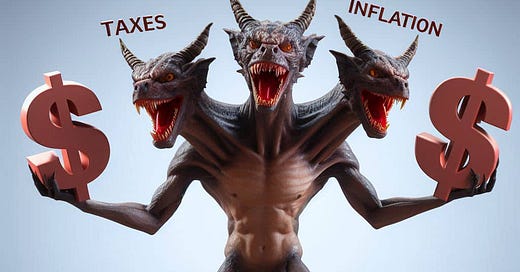


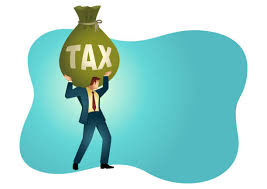
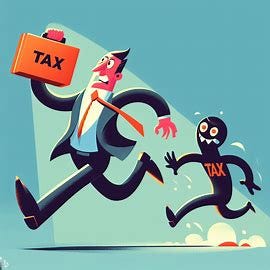
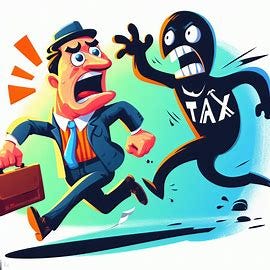





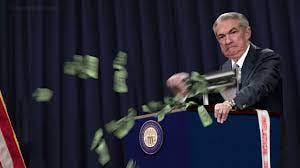
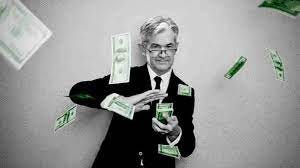

I think the best thing to do will be similar to the solutions you mentioned for the spike in fuel prices: get rid of the unnecessary regulations that hinder the production of goods and services such as education, transportation, healthcare, etc.
But then again who decides what regulations to keep and which to discard? There might be a hot debate on that.
Perhaps it will be better if most of the government provided service like roads, healthcare, etc are left in the hands of the private sector.
It might seem like a bad idea and might cause panic at first glance, especially with the high prices of private schools and healthcare.
But governments are already providing low quality services which aren’t really helping anyone.